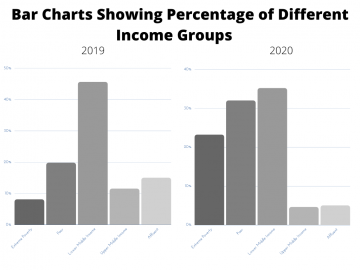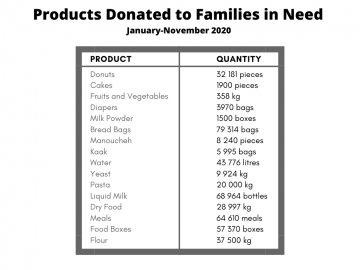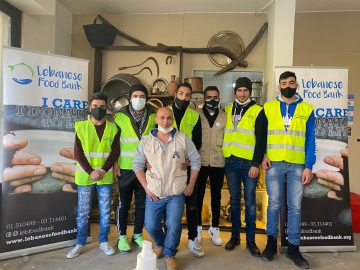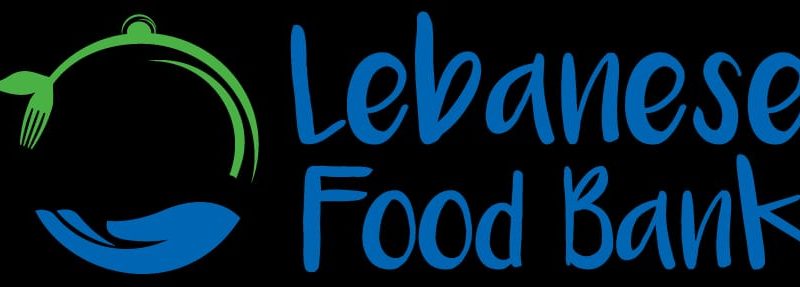Lebanon’s non-profit organisations (NPO) and non-government organisations (NGO) have stepped up to give aid to the people of Lebanon. In a country with a failing government, an economic crisis, a devastating blast and Covid-19 worsening, many Lebanese people are unable to make ends meet.
What Is The LFB in Lebanon?
The Lebanese Food Bank (LFB) is the largest NPO. In 2011, ordinary Lebanese citizens created the LFB. They provide help for those who are struggling the most. Their efforts help to alleviate hunger and redistribute excess food to reduce food waste. The current situation in Lebanon means that those who require help is becoming more and more each day.
This organisation has a great vision to end hunger in Lebanon by 2030, primarily. Millions of Lebanese citizens are living under the poverty line and that number has been rapidly increasing.
The United Nations Economic and Social Commission for Western Asia (ESCWA) have reported that in 2020, more than 55% of the Lebanese population are living below the poverty line. Hence more than half the population are living on an average of less than $14 a day. These figures are nearly double the rate in 2019 which was 28%.
The World Bank defines extreme poverty as people living on less than $1.90 a day. In 2019, 8% of the population were classed as living in extreme poverty. This percentage increased to 23% in 2020.

The graph above shows the percentage of people in poor, middle and affluent income groups in 2019 and 2020 according to the ESCWA. There is a significant change in the numbers of people living in extreme poverty with 8.1% in 2019, increasing to 23.2% in 2020. Moreover, the percentage of people in poverty also increased while those with upper middle income and those who are affluent, significantly decreased.
LFB’s Actions
Soha Zaitar is the Executive manager at the LFB. Soha explains the projects they are working on to tackle poverty.

The LFB started working with hotels, restaurants and catering companies to collect all the excess food that they did not use. This excess food was then packaged and redistributed to those in need. They find families in need through the NGOs. After which, the LFB distribute the food to these families.
Efficiency is key. Soha elucidates, “We work hard with the NGOs to save time and energy, and also to reach families all over the country.” The older NGOs in Lebanon have social assistance so they are always updating their data. In turn, this helps the LFB to reach more families even faster.
The Food Bank And Cooking Projects
The LFB are undertaking other projects. The executive manager of the LFB relates, “an awareness campaign with university and school students. The food box and the cooking project.”
The LFB went to nearly 100 schools and universities, working on suitable projects with the appropriate age groups. Soha recalls, “some students would do bake sales, others would visit those families in need. All of these projects would get students thinking about the importance of what the LFB does. This potentially inspires them to do more to help.”
The food box project consists of distributing food boxes all year round, not just during holidays such as Christmas, Ramadan and Easter. The people in need require help throughout the year. Soha explains, “Donations from and outside Lebanon is how we are able to have food items to then redistribute.”
Furthermore, ladies volunteer to cook from home is another project that was launched in October 2019. Soha continues, “since the blast, we have focused more on cooked meals and our team will go to each house to pack the food and distribute it to families in need.”

The table above shows how many distributions LFB have made between January and November this year.
Impact of Covid-19 On The LFB
The LFB had in excess of 150 volunteers since the explosion on 4th August. The increase of Coivd-19 cases has subsequently reduced this number. This is down to volunteers feeling anxious and worried about this new virus attack. Soha clarifies, “All the volunteers know about the safety measures, so we all wear masks, gloves and constantly sanitize everything.”
Lebanon was put in a national lockdown for the last 2 weeks of November and as a result of the increase in Covid-19 cases. Thankfully this didn’t affect the work of the LFB. Soha states, “As an NPO, every volunteer has an ID card that shows their name and position which would be shown to the police if stopped.”
The LFB states: “With the onset of the Covid-19 pandemic, LFB, in cooperation with Beit El Baraka and SEAL USA distributed more than 42,874 food boxes in 25 districts.” This was done with the help of 110 NGOs and the Lebanese Armed Forces to aid the needy during the darkest times.

Impact Of The Events OF 2020 In Lebanon
At the time of the catastrophic blast, the LFB expresses it “mobilized immediately and provided food to people in need on the premises through 4 different booths in the Gemmayzeh, Geitawi, Mar Mikhael and Saint Georges Hospital areas. The team was there for two weeks and distributed more than 32,000 hot meals.”
The economic crisis, the blast and Covid-19 is causing many people to lose their jobs or work on a reduced or low salary. In addition to this, the price of essential goods such as medicine is dramatically increasing. Also the rate of unemployment is increasing each day. Soha declares, “We are receiving phone calls, WhatsApp messages and emails even from very well-educated people asking for help. This made us realise that the need is very high and people are relying on us.”
Akram Zouheiri, a Lebanese citizen, founder of an NGO and worked with the government, recognises that “people go directly to the NGOs for help as they are reliable. The help has come more from NGOs and the social community itself.”
The LFB’s work is making a difference in so many Lebanese lives. However, the LFB still urgently requires donations. Soha exclaims, “It’s hard to survive in this country without the help of NGOs. We have a big responsibility to help as many people as we can.”
More from this project


 Who is Helping the People of Lebanon? (Video)
Who is Helping the People of Lebanon? (Video)